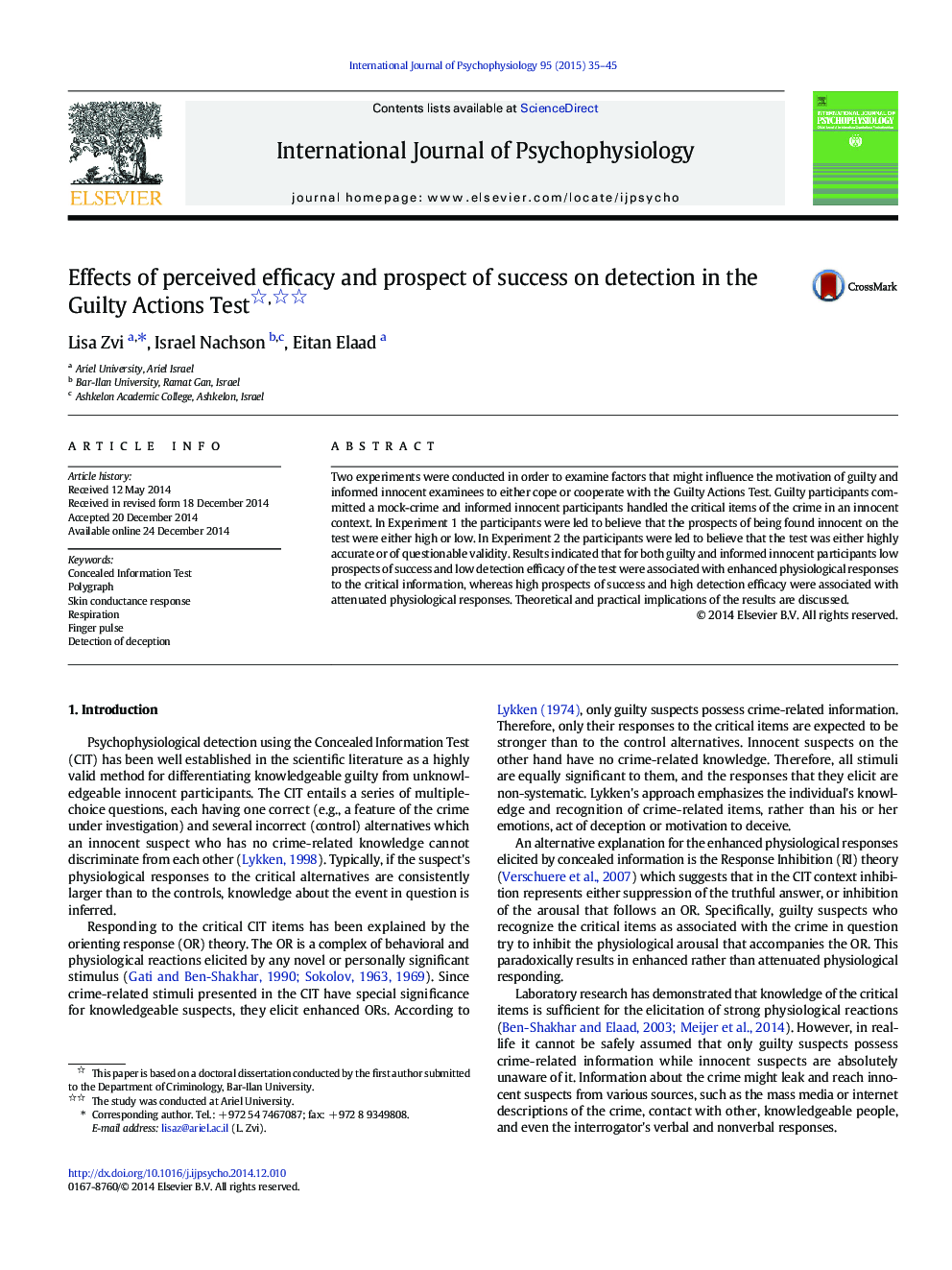| Article ID | Journal | Published Year | Pages | File Type |
|---|---|---|---|---|
| 930114 | International Journal of Psychophysiology | 2015 | 11 Pages |
•Guilty and informed innocent participants underwent the Guilty Actions Test.•Their perceptions of its efficacy and prospect of success on it were manipulated.•Innocent participants' responses were strong when perceiving poor chances of success.•Guilty participants' increased confidence to avoid detection attenuated responses.•Differentiating knowledgeable innocent examinees from guilty ones was possible.
Two experiments were conducted in order to examine factors that might influence the motivation of guilty and informed innocent examinees to either cope or cooperate with the Guilty Actions Test. Guilty participants committed a mock-crime and informed innocent participants handled the critical items of the crime in an innocent context. In Experiment 1 the participants were led to believe that the prospects of being found innocent on the test were either high or low. In Experiment 2 the participants were led to believe that the test was either highly accurate or of questionable validity. Results indicated that for both guilty and informed innocent participants low prospects of success and low detection efficacy of the test were associated with enhanced physiological responses to the critical information, whereas high prospects of success and high detection efficacy were associated with attenuated physiological responses. Theoretical and practical implications of the results are discussed.
